warrant
Latest

Minneapolis police used Google location data to find George Floyd protesters
Minneapolis police served Google geofence warrants to identify George Floyd protesters, raising questions about privacy and innocent bystanders.

House amendment would require warrants for web history searches
Congresswoman Zoe Lofgren announced an amendment that would prohibit the collection of Americans’ internet search history and web browsing data without a warrant.
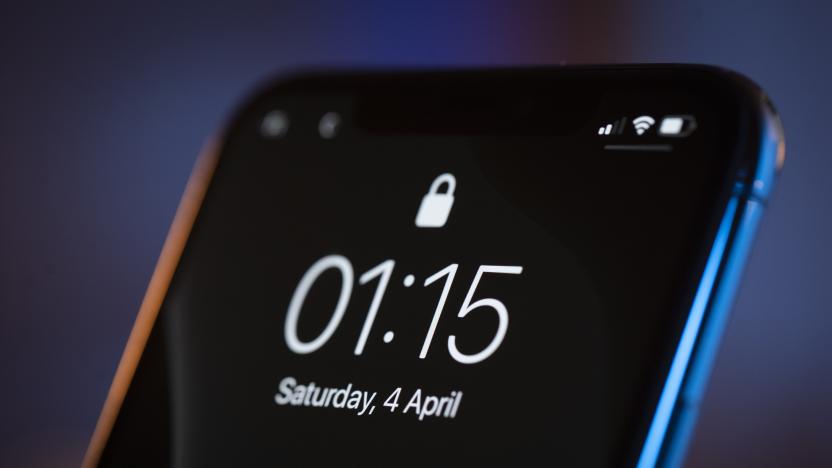
District judge rules FBI needs a warrant to access your lock screen
A Washington state judge ruled that the FBI needs a search warrant to look at a suspect's lock screen.

Google location data led police to investigate an innocent cyclist
Those concerns about police indiscriminately collecting Google location data have some grounding in the real world. NBC News has revealed that police inadvertently made a suspect of an innocent cyclist, Gainesville, Florida resident Zachary McCoy, after using a geofence warrant (collecting all location data around the scene of a crime) to look for leads in a March 2019 burglary. McCoy had been using RunKeeper to track his biking, and had passed by the victim's house three times in the space of an hour -- enough to raise eyebrows among investigators looking for suspicious info.

ACLU: Police must get warrants to obtain personal data from cars
You might not think of your car as a treasure trove of personal data, but it frequently is -- performance data, phone contacts and location info may be sitting under the hood. And the American Civil Liberties Union wants to be sure police can't just take it. The organization is appearing as a friend of the court in Georgia's Supreme Court on June 19th to argue that personal data on cars is protected by the US Constitution's Fourth Amendment and thus requires a warrant. The appearance is tied to a case, Mobley vs. State, where police used a car's "black box" to level more serious charges.

Senators propose legislation to protect your phone at the border
For years, US border agents have been demanding access to digital devices as people pass into and out of the country. The practice has raised red flags and lawsuits, and the number of searches has spiked under the Trump Administration. Last month, the ACLU charged federal agents with wielding "near-unfettered authority" to search phones, PCs and other devices. Yesterday, Senators Ron Wyden (D-OR) and Rand Paul (R-KY) introduced a bill that would require agents to obtain a warrant or written consent before they crack open digital devices and snag users' data.
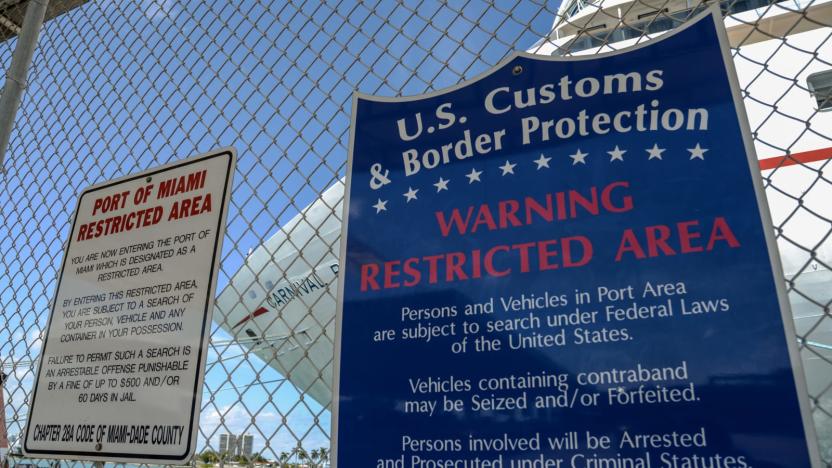
ACLU: border agents regularly perform 'warrantless' device searches
Privacy advocates have long been concerned that US border agents may be overstepping their boundaries when searching devices, and the ACLU just obtained evidence appearing to support that theory. The civil rights group has motioned for summary judgment in its lawsuit against the Department of Homeland Security after its discovery process revealed far-reaching policies for "warrantless and suspicionless" searches. Reportedly, both Customs and Border Protection as well as Immigration and Customs Enforcement have claimed "near-unfettered authority" to search phones, PCs and other devices, even though the requests fall well outside their purview.
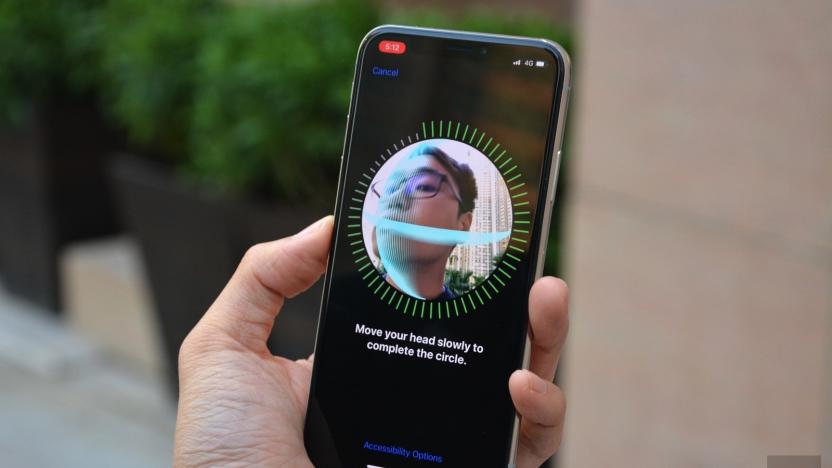
FBI forces suspect to unlock iPhone X with Face ID
In what may be a world first, the FBI has forced a suspect to unlock his iPhone X using Apple's Face ID feature. Agents in Columbus, Ohio entered the home of 28-year-old Grant Michalski, who was suspected of child abuse, according to court documents spotted by Forbes. With a search warrant in hand, they forced him to put his face on front of the device to unlock it. They were then able to freely search for his photos, chats and any other potential evidence.
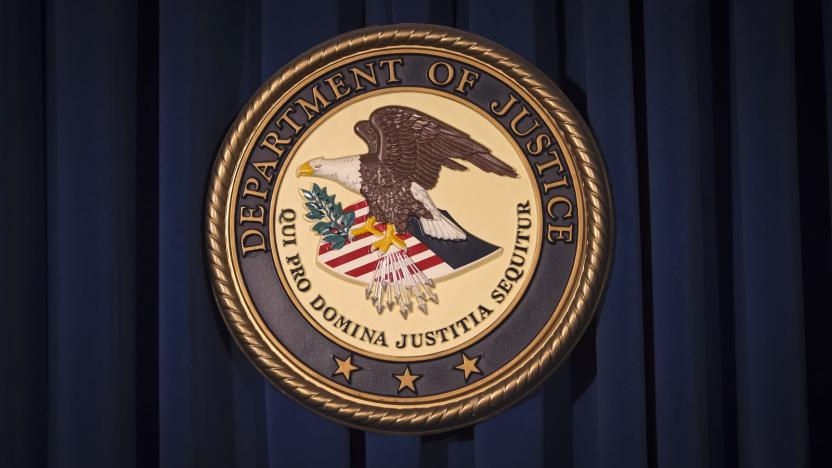
DC Superior Court reins in DOJ’s Facebook snooping
The government's overreach into the Facebook accounts of anti-Trump protestors is finally getting curbed. The ACLU sued the DOJ in September over its very broad warrant demanding all the info from a protest-organizing Facebook page, DisruptJ20, over a period of 90 days -- which included data on 6,000 individuals who interacted with it. Additionally, the ACLU sought to limit what information Facebook would be forced to provide on two people, Lacy MacAuley and Legba Carrefour, who helped organize using the DisruptJ20 page. Today, the ACLU announced that the DC Superior Court would be eliminating the former requirement and adjusting how much info the social network must disclose on the two activists.
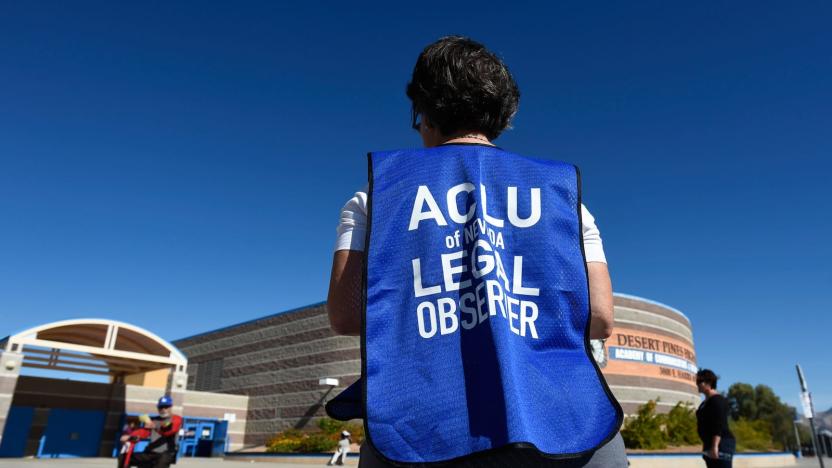
ACLU challenges DOJ request for info on 6,000 anti-Trump Facebook users
Way back in January, 200 protesters were arrested at Donald Trump's Presidential Inauguration for felony rioting. The resulting investigation into their activities has been a rollercoaster of complaints alleging DOJ overreach, including the department's request for 1.3 million visitors to a site (DisruptJ20.com) that organized the protesters. Today, the DC chapter of the ACLU announced it has filed suit against the government for another overly-broad set of inquiries. The first warrant requires Facebook to divulge extensive information on three users' accounts, including their contact network, while a second requests data on who interacted with DisruptJ20's Facebook page over a three-month period -- which is over 6,000 people.

Facebook is now free to share government search warrants with users
When the federal prosecutors submitted warrants to Facebook requesting information on three users earlier this year, they also demanded the social network not inform the user in question. That ends today after a court filing affirmed the government is doing away with the non-disclosure orders (NDOs) that had gagged Facebook from telling its users that the authorities were looking at their account data.

DOJ demands info on 1.3M visitors to protest-organizing website
A month ago, the Department of Justice served a warrant (PDF) to Dreamhost regarding one of its clients. This is routine for law enforcement to make such requests, the website hosting service said in a blog post -- except the page in question, disruptj20.org, had helped organize protests of Trump's inauguration. And the DOJ is demanding personal info and 1.3 million IP addresses of visitors to the site.
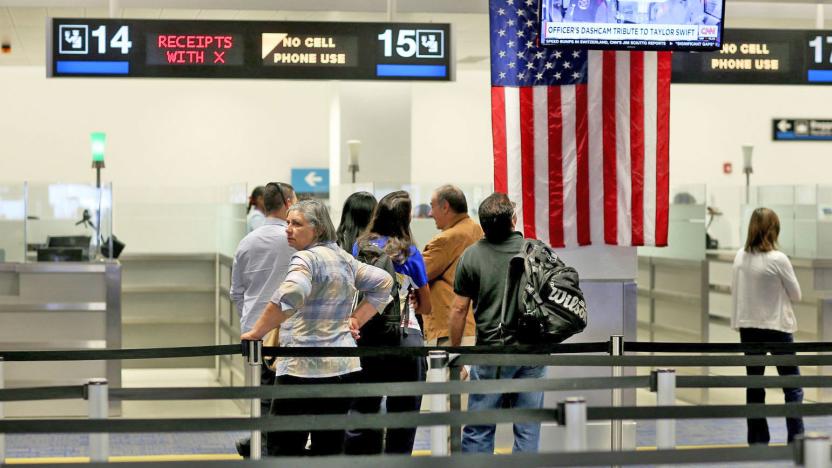
EFF says border control needs a warrant to search your tech
The Electronic Frontier Foundation (EFF) has submitted a court filing arguing that federal agents at international airports should obtain a warrant before snooping through passenger laptops, phones and other digital devices. Warrantless border searches are currently permissible under an exception to the Fourth Amendment, but as EFF notes, the number of these searches has more than doubled since President Trump moved into the White House.
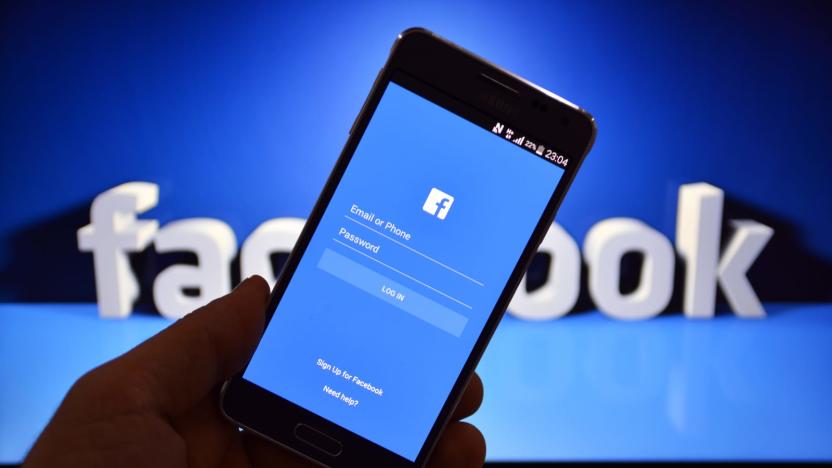
Facebook is fighting the US on user data requests
Facebook is challenging the government over data searches that are possibly related to protests that happened during Donald Trump's inauguration. According to information dug up by Buzzfeed, Facebook received warrants from prosecutors to search three accounts. Those were accompanied by non-disclosure orders preventing it from telling the affected users about any investigation. The gag orders may have come about because in February, the social network warned some protesters that police were digging around in their Facebook accounts.
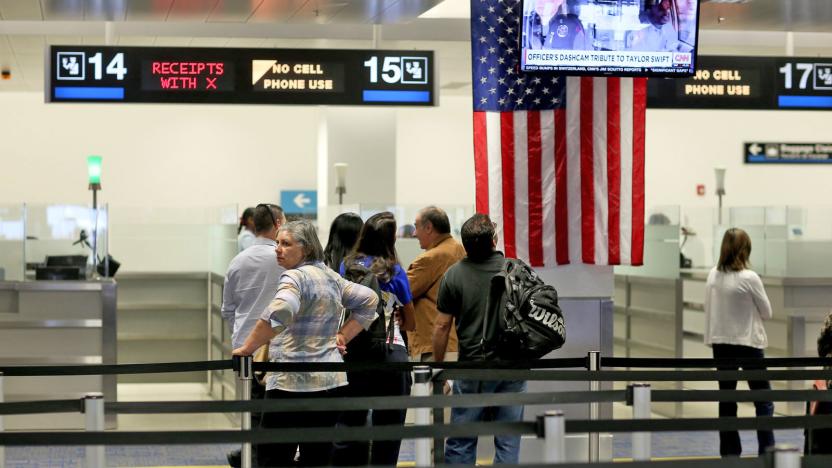
Senate bill would require a warrant for border phone searches
Did US border agents insist on searching the contents of your smartphone during your latest trip, privacy be damned? You're not alone -- Homeland Security has revealed that searches by Customs and Border Protection are surging, growing from under 5,000 in all of 2015 to 5,000 just this February. However, there might soon be legislation that keeps these searches in check. Oregon Senator Ron Wyden is preparing a bill that would not only require a warrant before border officials can search the devices of US citizens, but strictly forbid them from asking for passwords. They'd need a legitimate reason to believe your phone holds something shady, not just a hunch.

House bills would ban warrantless use of fake cell sites
House representatives are making good on their plans to implement clearer cellphone surveillance laws. A bipartisan group (led by House Oversight Committee chair Jason Chaffetz) has put forward two bills that would keep the use of Stingrays and other cell site simulators in check. The most prominent, the Cell Location Privacy Act, would require that law enforcement get a probable cause warrant before using one of these fake cell sites to track suspects. There would be exceptions for "exigent circumstances" and foreign intelligence gathering.

The way to a man's heart is actually through WiFi
They say you can't hide what's in your heart, but the saying is doubly true for an Ohio man whose pacemaker data has been used to indict him on felony charges of aggravated arson and insurance fraud.
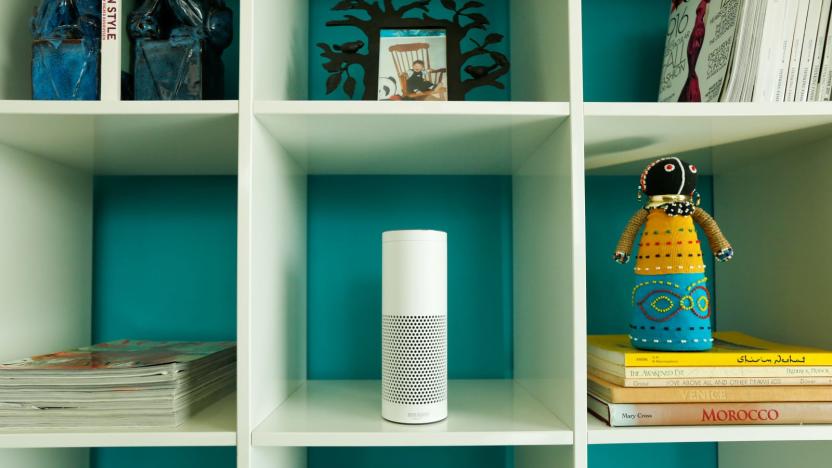
Police seek Amazon Echo data in murder case (updated)
Amazon's Echo devices and its virtual assistant are meant to help find answers by listening for your voice commands. However, police in Arkansas want to know if one of the gadgets overheard something that can help with a murder case. According to The Information, authorities in Bentonville issued a warrant for Amazon to hand over any audio or records from an Echo belonging to James Andrew Bates. Bates is set to go to trial for first-degree murder for the death of Victor Collins next year.

How an obscure rule lets law enforcement search any computer
With today's amendments to Rule 41, the statute that regulates legal search and seizure, the US Department of Justice has a new weapon to fight cyber crime -- but it's a double-edged sword. The changes expand the FBI's ability to search multiple computers, phones and other devices across the country, and even overseas, on a single warrant. In an increasingly connected world, amending the rules is both necessary for law enforcement agencies and deeply concerning for digital privacy advocates. And for everyday citizens, it's a little bit of both.

Supreme Court approves feds' request for greater hacking powers
The FBI found an ally in the Supreme Court in its quest to expand its hacking powers. Today, the highest federal court in the US has agreed to the changes made to Rule 41, giving judges the authority to approve remote access to suspects' computers outside their jurisdiction. Under the original Rule 41, a judge in, say, New York can only authorize hacking into a suspect's computer in New York. But the amended rule means that same judge in New York can approve the feds' request to hack into a computer in Florida, Alaska, or anywhere else, really.









